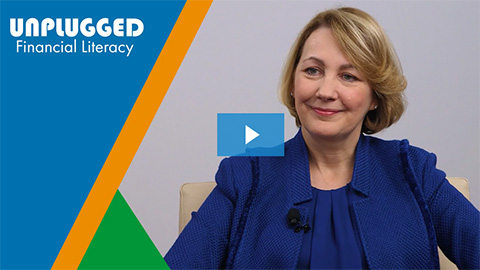Media Contacts
Catherine Theroux
Director, Public Relations
Work Phone: (860) 285-7787
Mobile Phone: (703) 447-3257
11/7/2019
 Financial literacy: Possessing the knowledge and skills to make informed and effective decisions about money and financial goals.
Financial literacy: Possessing the knowledge and skills to make informed and effective decisions about money and financial goals.
Today’s consumers have to manage increasingly complex financial issues. From student loans, credit card and other debt, and managing increased healthcare costs, to retirement savings and addressing the financial risks in retirement, there are more financial balls in the air for consumers to juggle.
A Secure Retirement Institute (SRI, formerly LIMRA Secure Retirement Institute) study finds only 13% of American adults feel very knowledgeable about financial products and investments. This means most consumers do not have strong knowledge about financial topics and may make decisions that undermine their financial security now and in retirement.
One of the greatest concerns Americans have is running out of money in a retirement that is likely to last 20–30 years or more. Beginning to save at the start of one’s career and saving consistently throughout one’s working years can help alleviate some of the worry that a person may not have enough assets when they reach retirement age. Unfortunately, the new SRI research uncovered a link between a lack of financial knowledge and not saving for retirement.
The study found people who have greater financial knowledge are more likely to be saving for retirement — regardless of age or household income. This is especially true for Millennials. SRI finds only 55% of Millennials who say they have low financial knowledge are saving for retirement. For Millennials who say they have strong financial knowledge, 84% say they are saving for retirement. Most Millennials do not have access to a pension plan and will be primarily responsible for funding their retirement. SRI research shows a delay of just five years could mean tens of thousands of dollars less in their retirement nest egg.
Another result of low financial knowledge can be increased stress. LIMRA research finds 4 in 10 workers feel daily stress over their personal finances. Just a third of today’s workers have a monthly budget or a long-term financial plan and only 2 in 5 have any sort of “rainy day” or emergency fund. Helping people establish sound financial goals and a path to accomplish them will not only improve their financial well-being but also lower their stress levels and improve their quality of life.
To learn more about financial literacy and how SRI is working with its members to help improve financial literacy, watch the latest Unplugged episode with Alison Salka, Ph.D., senior vice president and director of LIMRA research and Jamie Ohl, executive vice president and president of Retirement Plan Services for Lincoln Financial Group.
Director, Public Relations
Work Phone: (860) 285-7787
Mobile Phone: (703) 447-3257